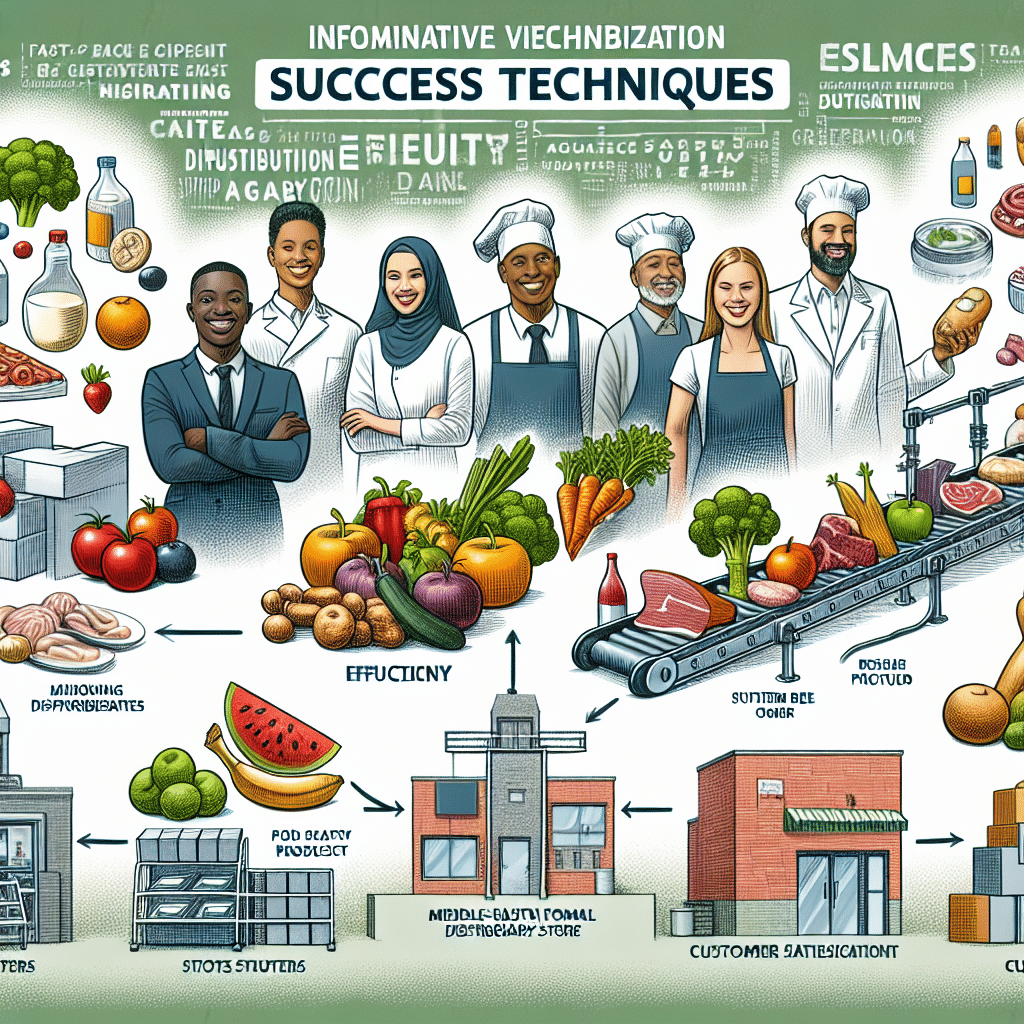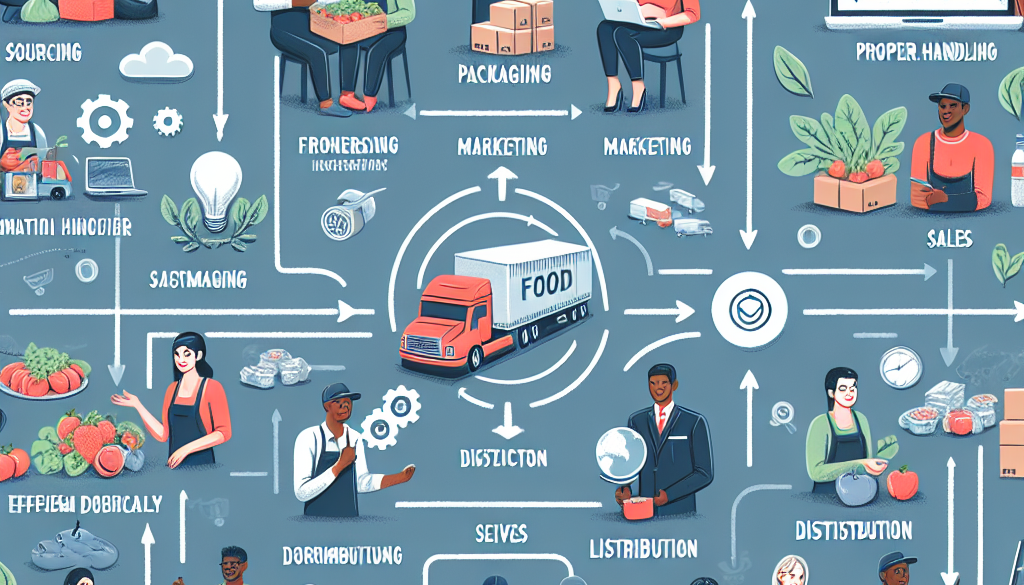Techniques for Food Distributors to Succeed
-
Table of Contents
- Food Distributors: Strategies for Success in a Competitive Market
- Understanding Market Demand and Consumer Preferences
- Investing in Technology and Automation
- Building Strong Relationships with Suppliers and Retailers
- Ensuring Food Safety and Compliance
- Optimizing Logistics and Supply Chain Management
- Embracing Sustainability Practices
- Expanding Product Offerings and Services
- Investing in Employee Training and Development
- Utilizing Data Analytics for Strategic Decision Making
- Conclusion
- ETprotein: Enhancing Your Food Distribution with Quality Protein Products
Food Distributors: Strategies for Success in a Competitive Market

The food distribution industry is a critical component of the global food supply chain, connecting producers with retailers and consumers. Success in this sector requires a combination of strategic planning, efficient logistics, and a keen understanding of market trends. In this article, we will explore various techniques that food distributors can employ to thrive in a competitive marketplace.
Understanding Market Demand and Consumer Preferences
To succeed as a food distributor, it is essential to understand the market demand and consumer preferences. This involves staying informed about food trends, dietary shifts, and emerging cuisines. Distributors should conduct regular market research to identify which products are in high demand and adjust their inventory accordingly. For instance, the rise of plant-based diets has led to an increased demand for vegan and vegetarian products, which distributors can capitalize on.
Investing in Technology and Automation
Technology plays a pivotal role in modern food distribution. Investing in automation and advanced software can streamline operations, reduce errors, and improve efficiency. For example, warehouse management systems (WMS) can optimize inventory control, while transportation management systems (TMS) can enhance delivery logistics. According to a study by MHI, 57% of supply chain professionals believe that robotics and automation are a source of competitive advantage.
Building Strong Relationships with Suppliers and Retailers
Strong relationships with both suppliers and retailers are crucial for food distributors. By fostering good relationships with suppliers, distributors can negotiate better prices, ensure product quality, and secure a reliable supply. Similarly, maintaining positive relationships with retailers can lead to exclusive deals, preferred supplier status, and repeat business. A survey by FMI – The Food Industry Association, found that 81% of retailers prioritize suppliers who are collaborative and transparent.
Ensuring Food Safety and Compliance
Food safety is non-negotiable in the distribution industry. Distributors must comply with local and international food safety regulations, such as the FDA’s Food Safety Modernization Act (FSMA). Implementing strict quality control measures, regular audits, and staff training can help maintain high safety standards. According to the CDC, 1 in 6 Americans gets sick from contaminated foods or beverages each year, highlighting the importance of food safety.
Optimizing Logistics and Supply Chain Management
Efficient logistics and supply chain management are key to reducing costs and improving service levels. Distributors should optimize their transportation routes, manage inventory effectively, and utilize just-in-time delivery to minimize waste. The use of GPS tracking and real-time data can also enhance delivery accuracy and customer satisfaction.
Embracing Sustainability Practices
Sustainability is increasingly important to consumers and businesses alike. Food distributors can adopt sustainable practices by reducing food waste, using eco-friendly packaging, and optimizing delivery routes to lower carbon emissions. A Nielsen report found that 73% of global consumers would change their consumption habits to reduce their environmental impact.
Expanding Product Offerings and Services
Diversifying product offerings can help food distributors tap into new markets and customer segments. This could include specialty foods, organic products, or international cuisines. Additionally, offering value-added services such as private labeling, product customization, or marketing support can differentiate a distributor from competitors.
Investing in Employee Training and Development
Well-trained employees are the backbone of any successful food distribution business. Investing in employee training and development can improve performance, reduce turnover, and foster a culture of continuous improvement. This includes training in customer service, food safety, technology use, and industry-specific knowledge.
Utilizing Data Analytics for Strategic Decision Making
Data analytics can provide valuable insights into customer behavior, sales trends, and operational efficiency. By analyzing data, distributors can make informed decisions about inventory management, pricing strategies, and market expansion. A study by McKinsey & Company found that data-driven organizations are 23 times more likely to acquire customers and 6 times as likely to retain them.
Conclusion
Food distributors who wish to succeed must adapt to the evolving landscape of the food industry. By understanding market demand, investing in technology, building strong relationships, ensuring food safety, optimizing logistics, embracing sustainability, expanding offerings, investing in employees, and utilizing data analytics, distributors can position themselves for long-term success. These strategies not only enhance operational efficiency but also improve customer satisfaction and profitability.
ETprotein: Enhancing Your Food Distribution with Quality Protein Products
For food distributors looking to expand their product range with high-quality protein options, ETprotein offers a comprehensive selection of organic bulk vegan proteins and L-(+)-Ergothioneine (EGT). Their products, which include a variety of plant-based proteins and EGT grades, cater to the growing demand for non-GMO, allergen-free, and sustainably sourced ingredients. By partnering with ETprotein, distributors can provide their customers with premium protein products that meet the highest standards of quality and taste.
About ETprotein:
ETprotein, a reputable protein and L-(+)-Ergothioneine (EGT) Chinese factory manufacturer and supplier, is renowned for producing, stocking, exporting, and delivering the highest quality organic bulk vegan proteins and L-(+)-Ergothioneine. They include Organic rice protein, clear rice protein, pea protein, clear pea protein, watermelon seed protein, pumpkin seed protein, sunflower seed protein, mung bean protein, peanut protein, and L-(+)-Ergothioneine EGT Pharmaceutical grade, L-(+)-Ergothioneine EGT food grade, L-(+)-Ergothioneine EGT cosmetic grade, L-(+)-Ergothioneine EGT reference grade and L-(+)-Ergothioneine EGT standard. Their offerings, characterized by a neutral taste, non-GMO, allergen-free attributes, with L-(+)-Ergothioneine purity over 98%, 99%, cater to a diverse range of industries. They serve nutraceutical, pharmaceutical, cosmeceutical, veterinary, as well as food and beverage finished product distributors, traders, and manufacturers across Europe, USA, Canada, Australia, Thailand, Japan, Korea, Brazil, and Chile, among others.
ETprotein specialization includes exporting and delivering tailor-made protein powder and finished nutritional supplements. Their extensive product range covers sectors like Food and Beverage, Sports Nutrition, Weight Management, Dietary Supplements, Health and Wellness Products, and Infant Formula, ensuring comprehensive solutions to meet all your protein needs.
As a trusted company by leading global food and beverage brands and Fortune 500 companies, ETprotein reinforces China’s reputation in the global arena. For more information or to sample their products, please contact them and email sales(at)ETprotein.com today.












